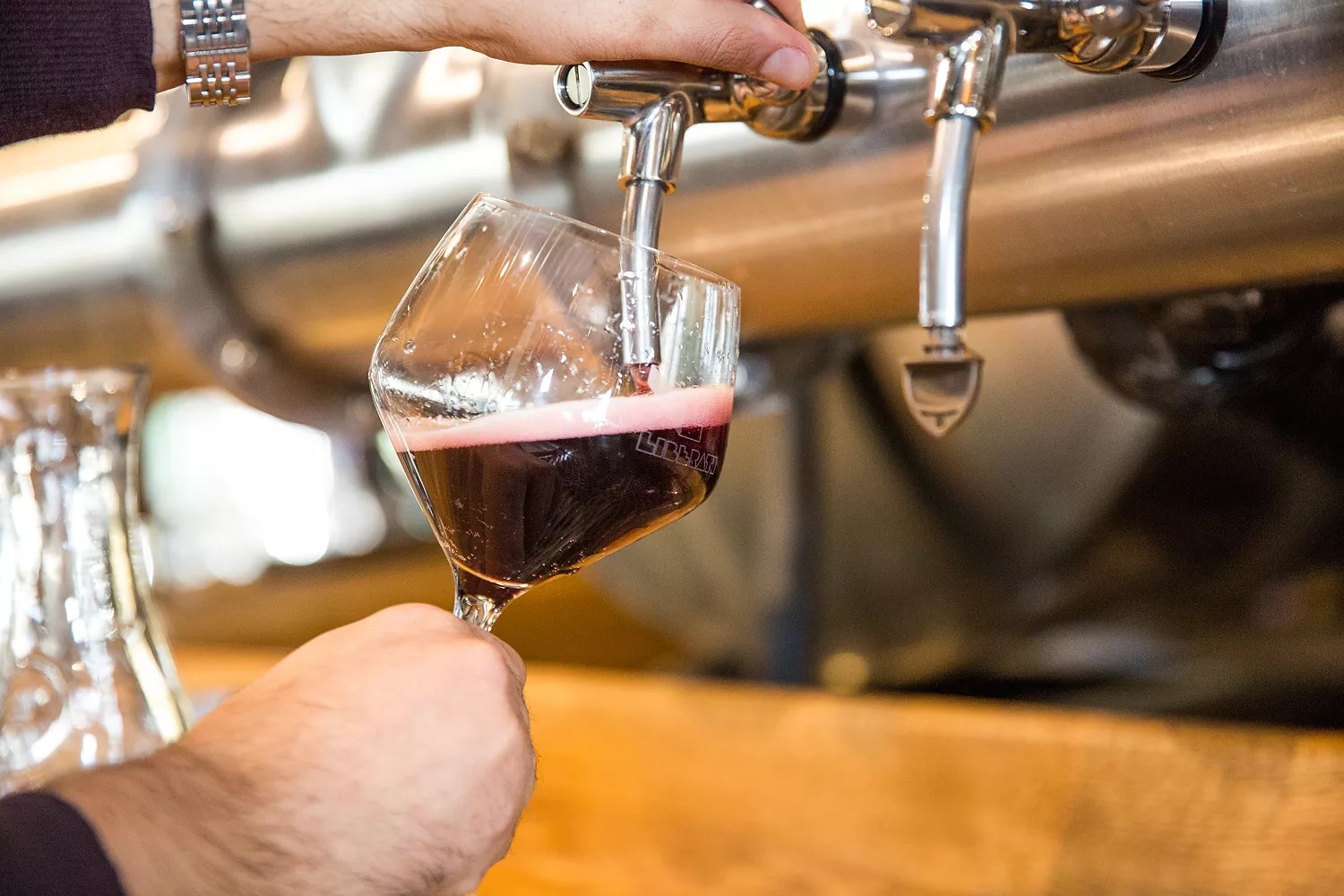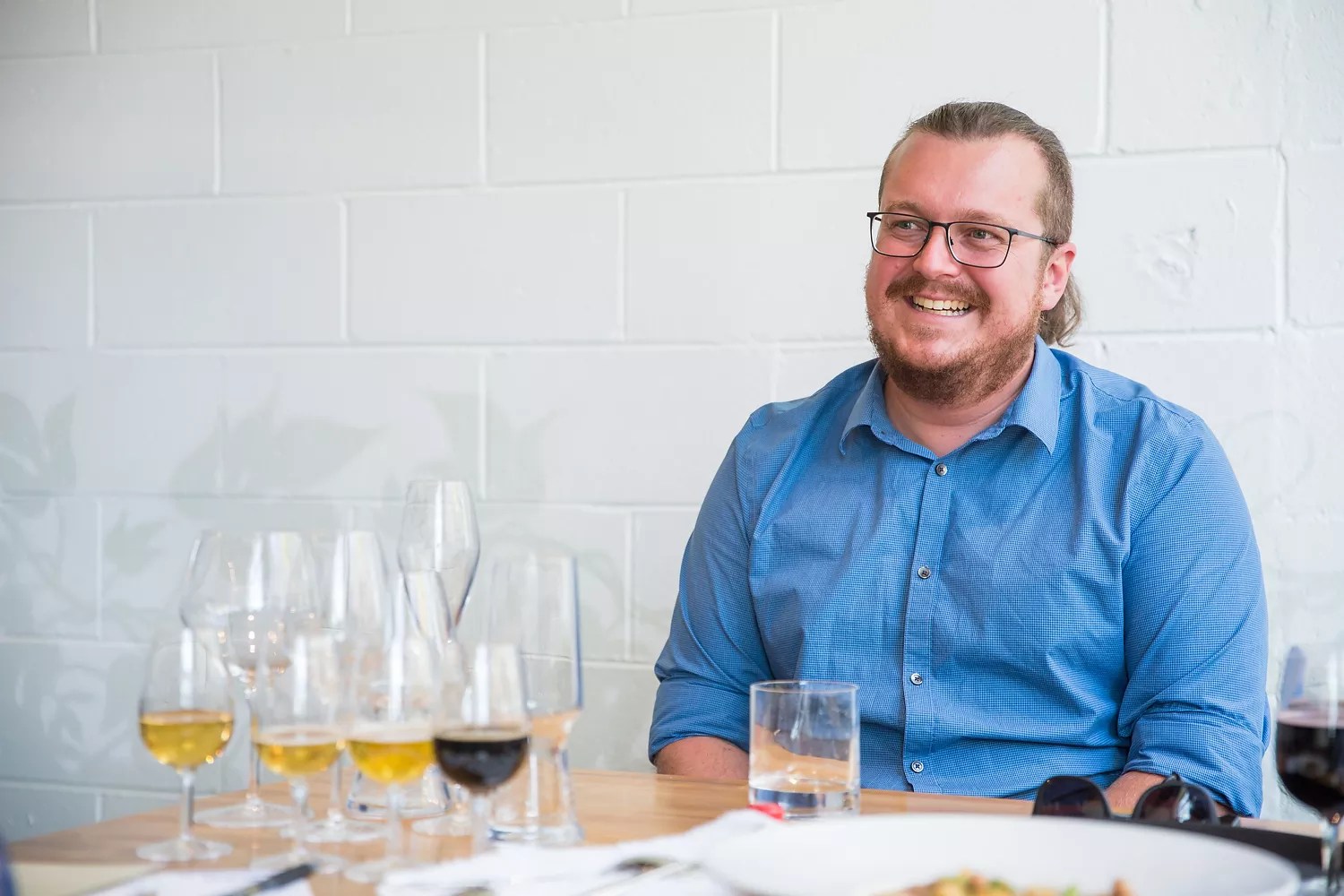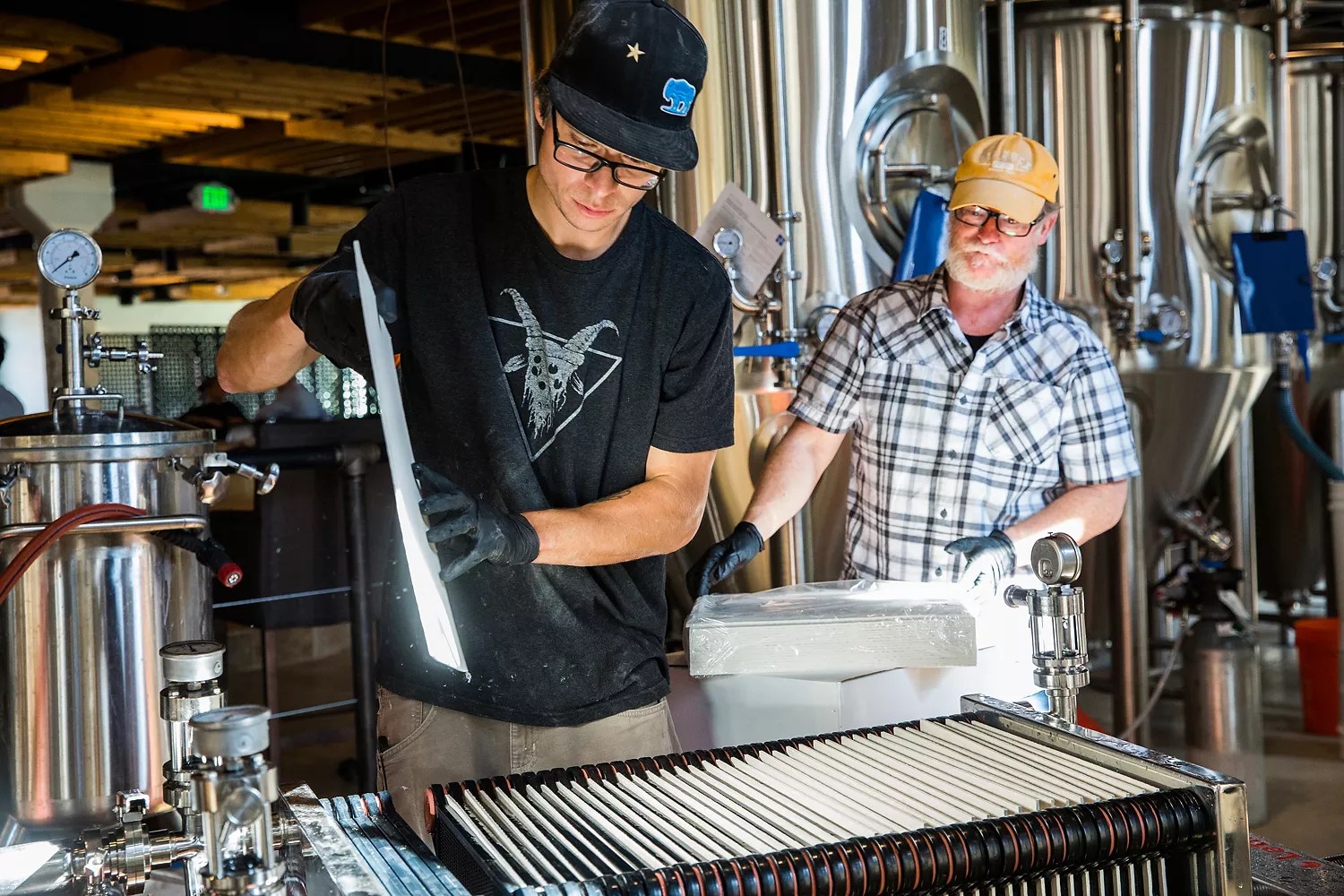
Danielle Lirette

Audio By Carbonatix
Alex Liberati moves back and forth between beer and wine as easily as he crosses over the lines of culture and language – from English to Italian to American, from Kolsch to Chardonnay to IPA.
He can discuss the subtleties of the wine-flavor wheel one minute, and the difficulties of keeping lactic acid out of his beer the next. He can opine in Italian about lasagna, or in English about liquor-license laws, or in both languages about the joys of drinking wine, beer, cocktails or any other adult beverage.
These intersections, borders and blends are where he finds his energy – something Liberati has plenty of. He’ll need all of that energy over the next few weeks and months, though, because Liberati is pioneering a modern style of wine-beer hybrids, which he calls “oenobeers,” at his new brewery and restaurant, Liberati Osteria and Oenobeers.
“We are discovering new worlds here, blurring the lines,” he says. “There are lots of books on how to make beer and many on how to make wine. But there isn’t even a pamphlet on what is in between. It’s uncharted territory, and it is so much fun. It’s like discovering everything all over again.”

Alex Liberati has been working on this project for three years.
Danielle Lirette
On Monday, Liberati will open Liberati Osteria & Oenobeers, a gorgeous restaurant boasting dishes from several regions of Italy, housemade mozzarella, charcuterie and pasta. But his real labor of love will be the brewery, where Liberati has a ten-hectoliter brewing system, more than ten beer and wine fermentation tanks, and a whopping 27 gleaming silver serving tanks located behind a draft system with 42 taps.
All of his beers will be brewed with hops, barley, water and yeast, just like every other beer in the world, but they will also include a wide swath of grape varietals. Technically – and legally – they will all be beers: Federal law allows brewers to use grapes as long as they comprise less than 50 percent of a brew’s fermentable sugars. So, for instance, he will offer a dry, hoppy pale ale made with 5 percent sauvignon blanc grapes that smells like wine (mostly) and tastes like beer (mostly), but offers a palate-bursting confusion between the two.
There is also a smooth, sweet Belgian saison with 35 percent chardonnay grapes, a roasty stout packed with cabernet sauvignon grapes, a kolsch made with 7 percent chardonnay grapes, a Belgian table beer brewed with riesling grapes, and a Belgian dubbel brewed with 49 percent malbec grapes.
That last one, by the way, tastes as if you had poured a beautiful malbec into a sweet, caramel-laden Belgian dubbel and stirred the mixture around – but with bridges that cross between the flavor profiles.

Liberati Osteria has 27 serving tanks behind the bar.
Danielle Lirette
Several of these beers were fermented with Brettanomyces yeast, which is known for its funky flavors, but none of the beers Liberati has brewed so far are funky or sour, which makes them different than most of the other beer-wine hybrids (which are few and far between) that have been produced in the United States. Locally, Avery, Baere Brewing, Spangalang, Wiley Roots and Black Project have all dabbled in them.
All of his beers are styles that already exist, he points out, but with “oeno” (pronounced “enno”) before them, he explains, because the prefix pertains to wine in ancient Greek. And he hopes the word “oenobeer” will catch on quickly.
“My mission at the moment is to usher oenobeers into the conversation,” he says. And he hopes that other breweries will take notice and try to make similar beer-wine hybrids. “We can create a group that way; we can exchange information and make it spread.”
A former craft-beer bar and restaurant owner in Rome – and a gypsy brewer throughout Europe – Liberati moved to Denver a few years ago because he had a special affinity for Colorado, and because he felt like Colorado beer drinkers were sophisticated enough to catch on to what he wanted to do.

Head brewer Bob Malone (right) and Ryan Mack change out the filtration system for the brewery.
Danielle Lirette
His partner in beer crime, ironically, is Bob Malone, a longtime Denver brewer who used to go by the nickname Reinheitsge-Bob when he worked at Flying Dog Brewing and Great Divide Brewing because of his dedication to traditional beer styles and techniques epitomized by the sixteenth-century Bavarian beer purity law known as Reinheitsgebot (which only allowed for malt, hops, yeast and water). Today, Malone laughs at the fact that he is focused on experimentation with beers that are the opposite of German-beer conformity. But he credits Liberati’s charisma and the scientific challenges that go into figuring out how to brew and ferment with both barley and grapes.
“It’s a mad science,” he says. “There are plenty of WTF moments, followed by epiphany.”
Together, Malone and Liberati have done more than 120 brews on their pilot system in order to figure out how to get the science and chemistry right. For instance, with the cab-infused stout, they had to find a fine line where the tannins from the wine grapes worked with the roasted malts.
“We’re not afraid of using any techniques in either wine-making or beer-making,” Liberati says.
Liberati Osteria & Oenobeers opens Monday, October 29, at 11 a.m. at 2403 Champa Street. See our complete slideshow for more photos of Liberati.